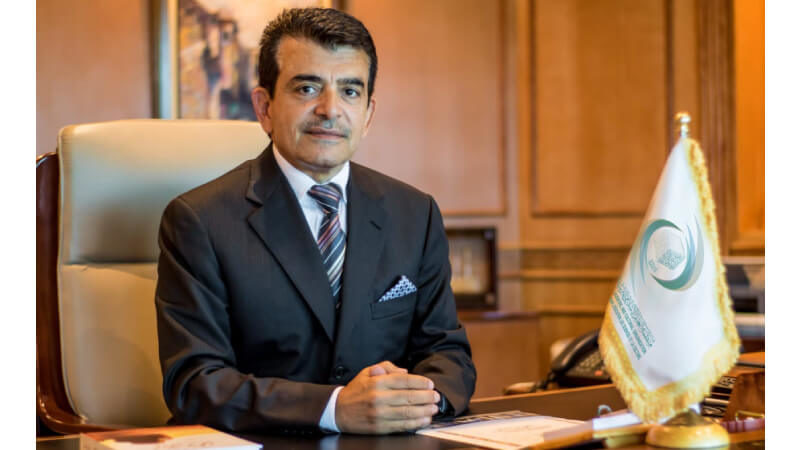
ICESCO Director-General reaffirms the importance of curricula development to fit schools of the future

10 June 2020
Dr. Salim M. AlMalik, Director General of the Islamic World Educational, Scientific and Cultural Organization (ICESCO), reaffirmed that the post-COVID-19 world requires us to anticipate the future of education and prepare for addressing the challenges of the upcoming period. The Director-General explained that such a goal could be achieved through the development of innovative curricula, alternative educational programmes to expeditiously make the transition towards the future digital school, adding that the traditional school will definitely change and will be replaced by the future virtual schools.
Dr. AlMalik’s highlighted this issue in his address at the Extraordinary Virtual Meeting of the General Conference of the Ministers of Education of the Member States of the Arab Bureau of Education for Gulf States (ABEGS), held today under the presidency of the Sultanate of Oman. The Conference’s agenda featured many topics on education and Member States’ efforts to mitigate the impact of the COVID-19 pandemic on the educational process.
In the same vein, Dr. AlMalik stated that the enormous investments in distance education would not be the magic wand that achieves all the desired outcomes. He maintained that advancing this field entails overcoming the many obstacles to its efficiency, most notably the weak educational data collection system and the slowdown in students’ progress o the official curricula. “The abrupt closure of the educational institutions did not leave enough time to prepare any appropriate transition strategies to adopt to distance education,” the Director-General stated. Moreover, Dr. AlMalik underscored that the current curricula are incompatible with this exigent phase and are in dire need of an upgrade, saying that countries should pay due attention to school wastage, which has mostly deteriorated as a result of the closure of the educational institutions.
Likewise, ICESCO Director-General said that, during the crisis, the Organization provided support to its Member States most affected by the pandemic by identifying its impact on the educational systems and intervening according to criteria and participatory approach. “Aware of the likelihood of the persistence of the pandemic and the risk of a second spike of the virus, particularly in the most affected countries, ICESCO continues to be vigilant of any emergency undermining the right to education in these countries,” he maintained. Along this line, the Director-General stated that the Organization prepared a comprehensive guide on the reopening of educational institutions, which provides practical recommendations and field mechanisms to ensure a safe and stable return to schools.
Furthermore, Dr. AlMalik stated that to prepare for education’s future, ICESCO launched an initiative to standardize the curricula of sciences and mathematics in the Islamic world, which was welcomed by the Conference’s participants. He added that ICESCO is also developing a strategy to integrate Artificial Intelligence (AI) in the fields of education and will present two studies at the virtual symposium it will hold on 18 June 2020. “The first study will be on the use of AI in education while the second study focuses on its ethics and regulations,” he further explained.
In closing, Dr. AlMalik called for increasing scientific research’s share in the national output to reach 3% in Muslim countries, which will promote these countries’ efforts towards leadership and excellence.




